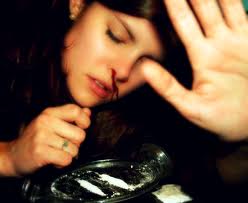Cocaine Addiction
The Watershed Addiction Treatment Programs
The Watershed of the Palm Beaches is licensed by the State of Florida and “Gold Seal” accredited by The Joint Commission for alcohol and drug treatment. This symbolizes value and illumines the dedication to meeting industry performance standards. We are a world-class health care facility that offers professional addiction treatment. Just two miles from beautiful Palm Beach County beaches, our rehabilitation center is the perfect setting to emerge refreshed and renewed.
Read More ›Studies estimate that as many as 2.1 million people in the United States alone have abused cocaine at some point in their lives. This drug is one of the most widely abused and known about drugs around the world and has been abused for centuries. Cocaine addiction affects thousands of people causing undue heartache and pain in its wake.
Understanding Cocaine Addiction

Cocaine has a number of significant, negative health effects.
Cocaine is a highly abused drug that has the potential to cause serious addiction and dependence. According to the Center for Substance Abuse Research, “cocaine is a highly addictive substance, and users can quickly develop a tolerance to the drug, needing more of the substance to achieve the desired effects.” Symptoms of cocaine addiction can become more severe as the user continues to abuse the drug. Long term cocaine abuse can cause depression, fatigue, irritability and anxiety that is heightened and which may persist for many months or even years following the decision to quit.
How is Cocaine Abused?
Cocaine is most often abused by snorting the drug but there are other methods of use as well such as injection or ingestion. According to Medical University of South Carolina, “cocaine use ranges from occasional use to repeated or compulsive use, with a variety of patterns in between.” Unfortunately, there is no safe method of cocaine use that is considered acceptable. Repeated use of cocaine, via any of the following administration routes is potential dangerous and can lead to addiction:
- oral
- intranasal
- intravenous
- inhalation
- ingestion
Dangers of Cocaine Addiction
A number of medical complications and dangers can arise with cocaine abuse and addiction. The most common dangers of cocaine addiction include:
- changes or disturbances in heart rhythm
- chest pain
- respiratory failure
- seizures
- stroke
- nausea
- inflammation of the nasal passages
- runny or stuffy nose
- nosebleeds and nasal infections
- loss of sense of smell
- pain or infection at the injection site
- transmission of disease
- heart damage
- damage to the liver or kidneys
- damage to the lining of the stomach
Effects of Cocaine Addiction
A number of effects of cocaine addiction can plague the user making life difficult. Cocaine addiction is not highly difficult to overcome in the short term but with each successive use of the drug, the risk of dependence and the challenge with quitting becomes much stronger. Short term effects of cocaine addiction include:
- heart problems
- heart attack
- chest pain
- loss of appetite
- insomnia
- difficulty swallowing
- nausea
- abdominal pain
Long term effects of cocaine addiction include:
- tolerance
- increased risk of HIV or AIDs
- increased risk of infection
- track or need marks on the arms or other areas of the body
- death
Signs & Symptoms of Cocaine Addiction
As cocaine abuse continues, the signs and symptoms of cocaine addiction are likely to become more evident and monumental in the user’s life. Tolerance is the first sign of addiction that the user will notice– According to NIDA, “tolerance occurs when the person no longer responds to the drug in the way that person initially responded.” When this occurs, it will take more does or larger doses in order to produce the same effects. This is the first sign of addiction but there are many others such as:
- weight loss
- missing or lost money
- lying about the drug use
- stealing to fuel the cocaine habit
- using cocaine at work or school
- using cocaine instead of spending time with others
- avoiding friends and family while using cocaine
- avoiding other activities in order to use cocaine
- mood swings
- legal problems from drug possession or from being under the influence
- using cocaine despite known consequences
According to the US National Library of Medicine, a number of psychological symptoms of cocaine addiction may also be present including:
- hallucinations
- agitations
- delusions
- violence
- paranoia
- suicidal thinking
- exacerbation of comorbid psychiatric disorders
Cocaine Addiction Treatment Options
According to the Medical University of South Carolina, “treatment of cocaine addiction is complex since it must address a variety of psychobiological, social and pharmacological aspects of the patient’s drug abuse.” As such, inpatient and outpatient therapy and care is often required to help those who are addicted to get their lives back on track. CBT and Contingency Management have both been found to be effective at helping patients to overcome cocaine addiction.
Certain medications have been part of recent studies for the treatment of cocaine addiction. The following medications are still in testing phases but may one day be used openly in the treatment of cocaine addiction:
- Adderall-XR
- Lisdexamphetamine
- Dopaminergic LCE
Cocaine Addiction Recovery
Cocaine addiction recovery will be encompassed by an array of different elements including treatment, support and aftercare. People who are addicted to cocaine often benefit from various self help methods of overcoming the addiction and restoring a sense of stability into their lives. While there are no known medications that will treat cocaine addiction at this time (the above medications are being researched for effectiveness and have not been approved by the FDA for the treatment of cocaine addiction) there are a number of options available to assist you including:
- Cognitive Behavioral Therapy – a method of treatment that focuses on change the behavioral reaction that a patient has to different stimuli.
- Community Reinforcement Therapy – treatment that focuses on providing community support to patients in treatment by reinforcing their achievement of recovery goals.
- Incentive rewards therapy – a treatment that focuses on providing patients with incentives for behaviors well done and for achieving certain treatment goals.
Your cocaine addiction recovery will likely include time spent in treatment, followed by time spent in support groups and a lifetime of follow up care.






